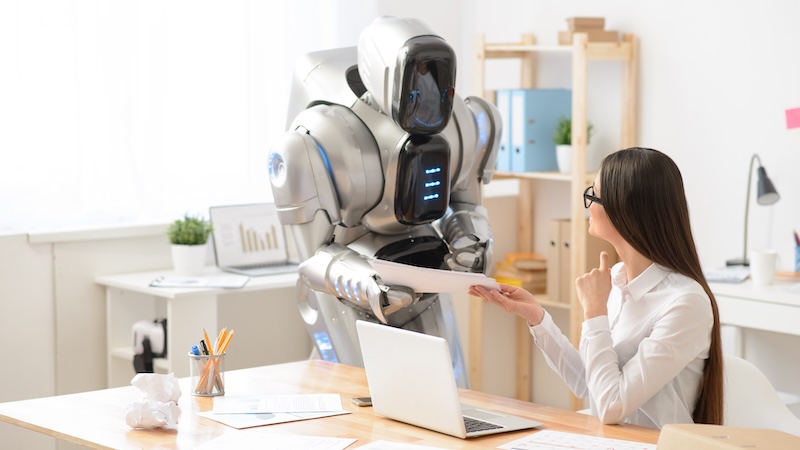
While some people see artificial intelligence as a threat to their jobs, it also has great potential. As a current study shows, AI could replace thousands of civil servants in the future – and thus counteract the shortage of skilled workers.
The issue of bureaucracy is as strongly linked to Germany’s image as German punctuality. However, the civil service in this country has recently been repeatedly criticized: experts are increasingly criticizing its efficiency and often see bureaucracy as a source of high costs.
At the same time, there is an enormous shortage of skilled workers. According to a recent Study by the management consultancy McKinsey However, the use of artificial intelligence could help.
Can AI replace civil servants?
According to the study, there is currently a shortage of around 550,000 full-time employees at the federal, state and local levels. This gap could be reduced by up to 165,000 employees through the use of generative artificial intelligence. Because with the help of AI, new possibilities for automation would arise.
Automated systems have so far only been able to take on 20 percent of the tasks that require complex specialist knowledge. If artificial intelligence came into play, the proportion could rise to 55 percent.
From chatbot to author: This is how AI can work effectively
To find out how efficient the use of artificial intelligence can be, McKinsey analyzed around 2,100 different work activities and the skills required for them. The result: In public administration, tax and local administrations in particular could benefit from the use of GenAI.
In general, the areas of application in the public service are diverse. So far, the technology has already been used for citizen-oriented communication through chatbots, for example. In some cases, they can handle around half of the inquiries that human call center agents currently handle.
Artificial intelligence could also be used to create summaries, automate change requests, generate new content for brochures and develop software.
AI as a replacement for civil servants: Security needs a guarantee
However, until AI can actually replace officers, security must be guaranteed. Confidential government data could become public or stolen – especially if administrative employees accidentally enter it into AI models via prompts.
This is also why not only artificial intelligence, but also human staff must be adequately trained. Officials would need training to effectively use the new technology and work with the data generated.
Another risk arises when AI results contain outdated, incomplete or inaccurate information. They can jeopardize public trust in government services. According to McKinsey, artificial intelligence is fundamentally a promising tool for reducing the skills gap in the German public service.
Also interesting:
- Zombie Brands: AI Websites Steal Authors’ Identity
- Japan: 500 kilometer long conveyor belt to transport packages
- Career killer: AI poses a real threat to these jobs
- Completely new professions: Artificial intelligence has created these 5 jobs
The post AI could replace 165,000 civil servants in Germany by Beatrice Bode appeared first on BASIC thinking. Follow us too Facebook, Twitter and Instagram.
As a Tech Industry expert, I believe that the potential for AI to replace civil servants in Germany, or any country for that matter, is a double-edged sword. On one hand, AI can greatly increase efficiency and productivity in government operations, potentially saving time and money for taxpayers. It can also automate repetitive tasks, allowing civil servants to focus on more complex and strategic issues.
However, the idea of AI replacing a significant number of civil servants raises concerns about job displacement and the impact on the workforce. It is important for governments to consider the social implications of implementing AI in public sector roles and to have plans in place to retrain and reskill workers who may be affected by automation.
Ultimately, the key is to strike a balance between leveraging the benefits of AI in government operations while also ensuring that the human workforce is not left behind. Collaboration between humans and AI can lead to more effective and efficient governance, but it must be done thoughtfully and with consideration for the potential impact on workers.
Credits